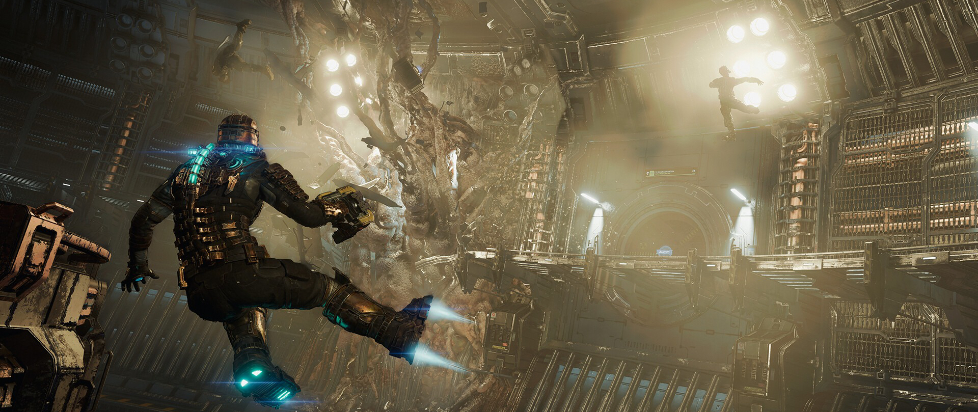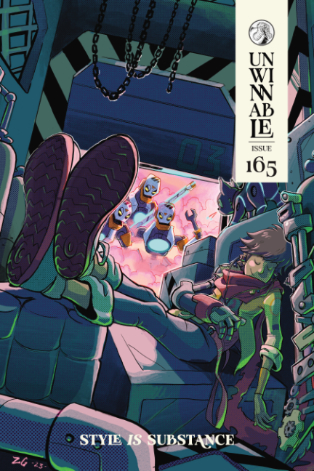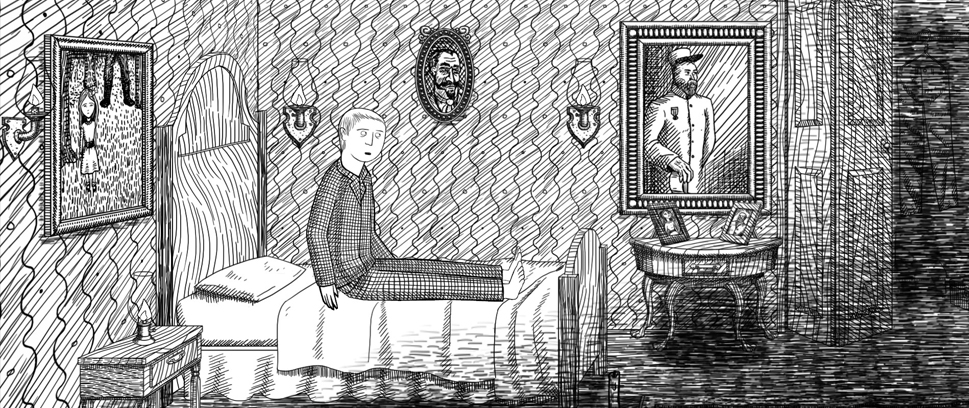
The Unsettling Mindfulness of Horror

This column is a reprint from Unwinnable Monthly #165. If you like what you see, grab the magazine for less than ten dollars, or subscribe and get all future magazines for half price.
———
We are what we’re afraid of.
———
On the internet, they’re everywhere, so ubiquitous as to have become a meme. Always on their way to or from yoga (which they’ll invariably tell you will cure all your ills), carrying some kind of superfood smoothie with ashwaganda and turmeric, talking about the religious experience they had on their last ten-day silent meditation retreat. The Goddamn Mindfulness People. The level at which they have their lives figured out can seem daunting to us normal folk, and their insistence that you can think yourself into a better life irrespective of material conditions is really frustrating to keep hearing about (because…no).
All that having been said, I hope I’ve earned some self-aware goodwill when I tell you that I’m (kinda, sorta) a Goddamn Mindfulness Person. I meditate, albeit pretty poorly, every day. I do yoga. I’ve even been to a couple single-day silent retreats. Never got on board with the smoothies, though. I find that the conscious act of slowing down and considering what I’m doing, developing a more articulated relationship with my body and my emotions, does actually help me feel better when the shit hits the fan.
So, what does this have to do with the subject of my column? Don’t worry, I’m not pivoting into New Age self-help. As I’ve been playing through some horror games recently, I’ve realized that the way they structure the mechanics and narrative can map pretty well onto a basic understanding of what it means to be mindful – to succeed in a survival horror experience, mindfulness is an incredibly helpful tool (Note: here, I’m using mindfulness to simply mean “an awareness of what is happening in a given moment.” This can mean what is happening TO you, AROUND you, and internally, the emotions you are experiencing, instead of fixating on the past or worrying about the future. All that together is a pretty good working definition of being mindful.)
To demonstrate what I’m talking about, let’s contrast two different survival horror experiences, from the same broad development team around a decade apart – Dead Space and The Callisto Protocol. These two games obviously share some design sensibilities, but I don’t understand complaints that Callisto is too same-y and attempts to emulate Dead Space too closely, because the games deal with their central combat mechanics in incredibly different ways, that privilege or obfuscate the mindful potential of the experience.

To demonstrate, let’s first look at Dead Space. All combat in the game relies on guns and thus on having ammunition, which is a scarce resource. Health refills are similarly hard to come by. Every combat encounter in the game must be tensely negotiated and heavily emotionally regulated – if the player panics and ceases to be mindful of their inventory, blowing bullets that miss their targets, they’ll soon be in a pretty grim scenario. In order to be successful, the player has to be constantly aware of the total set of their resources, and also be able to remain calm in the incredibly tense situations of horror that the game creates.
Now, let’s contrast this with The Callisto Protocol. While there are weapons with ammunition in the game, a lot of the combat is melee in nature, with the protagonist Jacob duking it out with the enemies. The combat in the game naturally has more of a brawler feel to it, not quite as smooth as an Arkham game, but with the same sort of flow; press the attack button at the correct time, use the analog stick to dodge incoming blows and judiciously use guns to deliver final blows to stunned enemies within their stagger window. While this experience also requires a basic understanding of the combat situation, it’s less consciously mindful in that the flow of the mechanics encourages a sort of mindless muscle memory engagement with the game (many people would refer to this as a “flow state,” a hotly debated topic in contemporary psychology). This is neither better nor worse than what Dead Space does (though people will disagree on both fronts); it’s simply a different method of engaging your mindful capacities within the game. Readers with a particularly long memory may think that a lot of this sounds similar to one of my first columns, on inventory management and the rhetorical concept of Kairos, and you’d be right – I think Kairos and mindfulness are deeply interrelated concepts.

While this is just one example, I’d argue we can see the differences in stances on horror-mindfulness across many franchises. In fact, I’d argue that one of the juggernaut franchises, Resident Evil, has successful entries that take both stances – The first three games and Resident Evil 7 want you to engage in consciously mindful inventory management, while Resident Evil 4 and Village prefer to give you more resources upfront to encourage a more flow-based, muscle memory experience. The big question here to my mind is: if the experience isn’t consciously mindful, on what level are we actually “learning” to play a given game? As a thought experiment, try to explain to someone how to be successful in the first Resident Evil versus a very flow-based game like Arkham Asylum. At least for me, it’s a lot harder to provide concrete strategies for the latter, because it relies so much on a musclebound, intuitive understanding of in-game timing.
Again, I’m not saying one way is explicitly better than the other, but I think being aware of the different ways our brains are being worked by the game is important to understanding from where our enjoyment cometh. When we play, do we want to be challenged intellectually with mindful problems? Or do we want to engage in a more heavily sensory and affective flow experience, where our muscles take over and some parts of our brain take five? Understanding what we enjoy from a horror game experience can help us gain even more from play, while understanding the habits of mind that play is reinforcing.
———
Emma Kostopolus loves all things that go bump in the night. When not playing scary games, you can find her in the kitchen, scientifically perfecting the recipe for fudge brownies. She has an Instagram where she logs the food and art she makes, along with her many cats.




